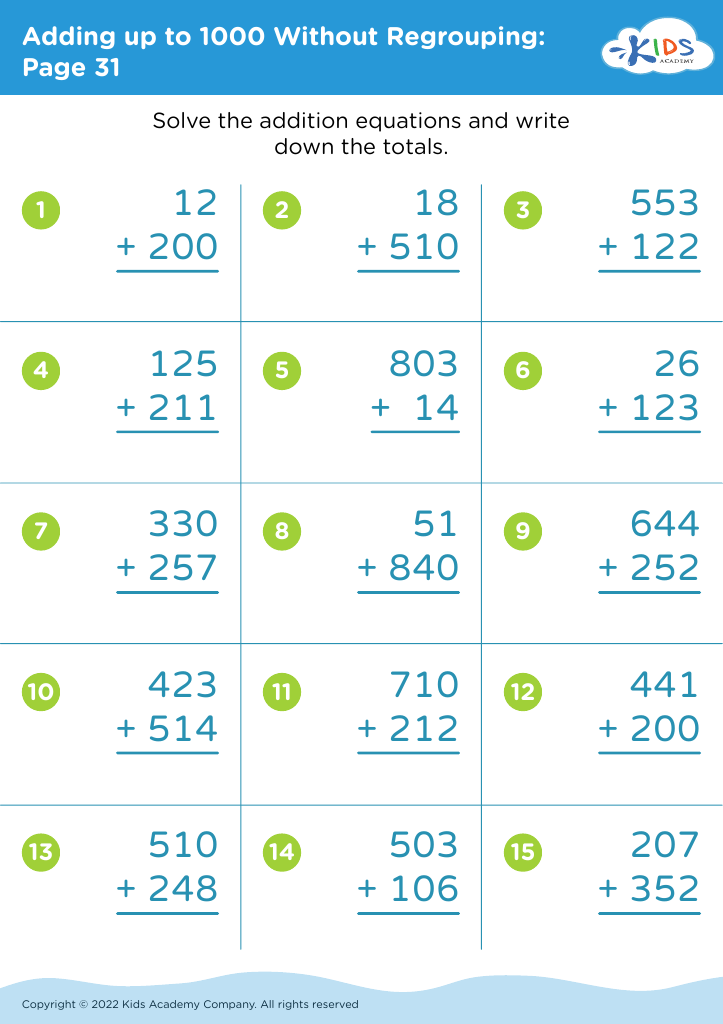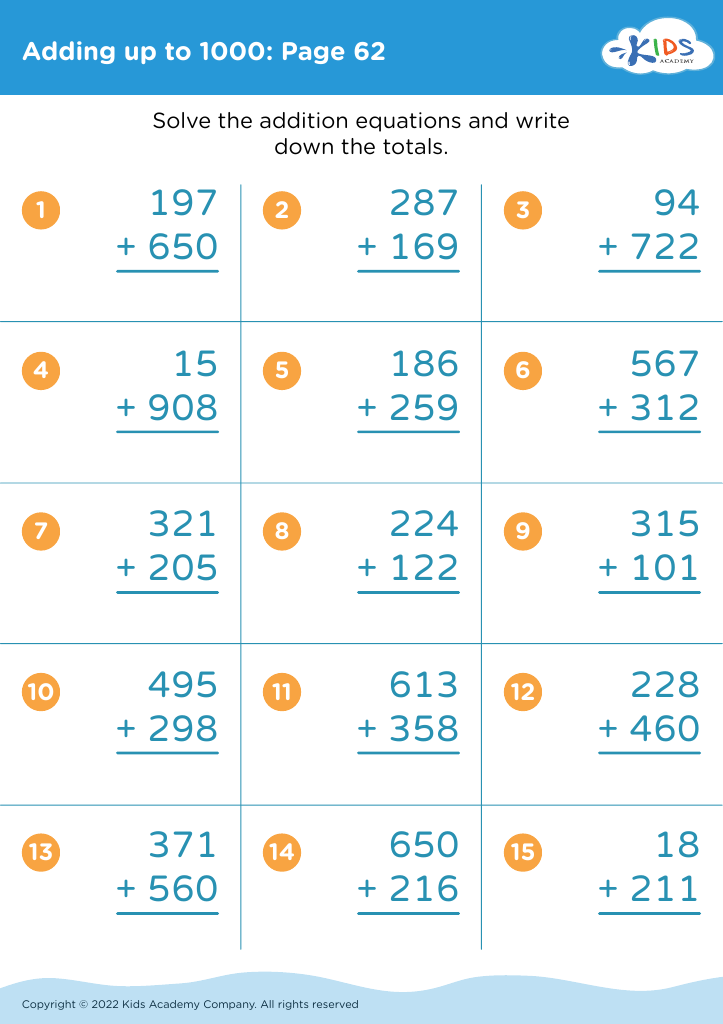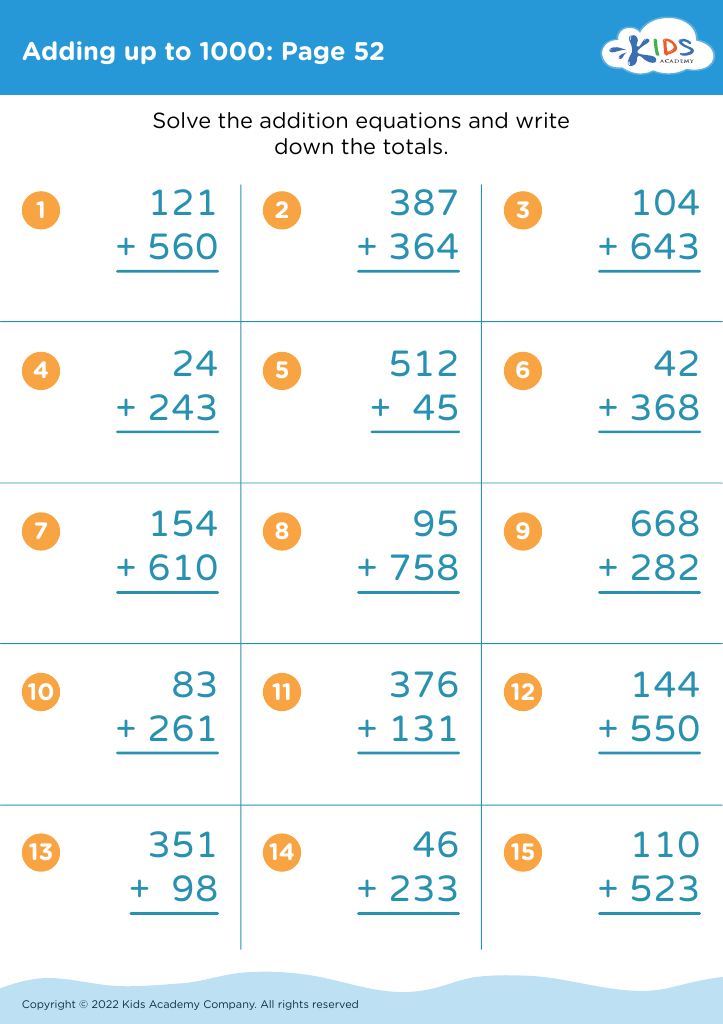Understand fractions Adding up to 1000 Worksheets for Ages 5-7
4 filtered results
-
From - To
Discover engaging and interactive worksheets designed to help children aged 5-7 understand fractions while adding up to 1000! Our comprehensive resources feature colorful images and simple exercises that make learning about fractions fun and accessible. Kids will develop essential skills in identifying, comparing, and adding fractions through step-by-step guided practice. Aligned with age-appropriate learning standards, these worksheets encourage critical thinking and boost confidence in math skills. Perfect for educators and parents, our materials cater to various learning styles, ensuring that every child can grasp the concept of fractions easily. Start your child’s journey into the world of fractions today!
Understanding fractions is a foundational skill that supports broader mathematical concepts, particularly for children aged 5-7. During these early years, kids learn to conceptualize sizes, proportions, and relationships between numbers, which are crucial for their overall mathematical development. By teaching fractions, especially in contexts that total 1000, students develop an awareness of parts making a whole, setting the stage for more complex arithmetic.
This knowledge fosters critical thinking and problem-solving capabilities as children encounter real-life scenarios involving sharing, measuring, and dividing. Additionally, grasping fractions helps build confidence as learners engage in hands-on activities.
For parents and teachers, emphasizing this area in a supportive and engaging manner makes math relevant and exciting. It enables them to connect everyday experiences—such as cooking, shopping, or playing games—with academic concepts, reinforcing the idea that math isn't just about numbers in a textbook.
Ultimately, teaching fractions not only strengthens number sense but also prepares children for more advanced topics in mathematics, nurturing lifelong skills. Therefore, investing time and resources in understanding fractions—particularly up to 1000—enriches children's educational journey and sets the groundwork for future academic achievement.




















